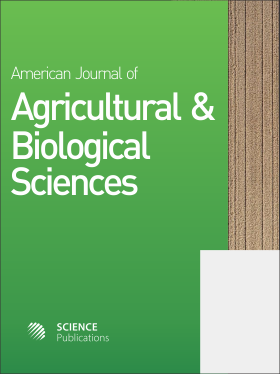Drought and Terminal Heat Stress Effects and Its Management on Wheat Genotypes: A Review
- 1 Department of Agriculture, Institute of Agriculture and Animal Sciences, Tribhuvan University, Paklihawa, Rupandehi, Nepal
- 2 Department of Agriculture, Kathmandu University, Dhulikhel, Kavrepalanchok, Nepal
- 3 Department of Agriculture, Agriculture and Forestry University, Rampur, Chitwan, Nepal
Abstract
Wheat (Triticum aestivum) is a vital cereal crop that plays a crucial role in global food security, supplying essential calories and protein to over 80% of the world's population. In recent decades, the effects of climate change, particularly rising temperatures, have raised concerns about Wheat production worldwide. The optimal daytime temperature for Wheat growth during its reproductive stage is around 15°C. However, the sustainable production of Wheat is increasingly challenged by the adverse effects of climate change, notably through drought and terminal heat stress. This comprehensive review examines the complex interactions between these abiotic stresses and various Wheat genotypes, highlighting their significant impacts on plant physiology, biochemistry, growth dynamics, and grain yield. The review also evaluates a range of genetic, biotechnological, and agronomic strategies designed to enhance the resilience of Wheat genotypes to heat stress. By integrating the latest research findings with practical applications, this review offers a detailed roadmap for enhancing the adaptive capacity of Wheat plants to cope with the growing threats of drought and terminal heat stress, thereby promoting sustainable Wheat production in an evolving climate. Drought stress leads to significant biochemical changes within plants, notably an increase in Abscisic Acid (ABA) levels in xylem sap due to soil moisture deficiency. Similarly, heat stress can damage thylakoid membranes, resulting in the formation of reactive oxygen species that deactivate chloroplast enzymes. Addressing these stresses through genetic, biotechnological, and agronomic management practices is essential for maintaining Wheat productivity.
DOI: https://doi.org/10.3844/ajabssp.2024.16.22

- 32 Views
- 8 Downloads
- 0 Citations
Download
Keywords
- Climate Change
- Drought
- Heat Stress
- Heat Shock Protein
- Temperature
